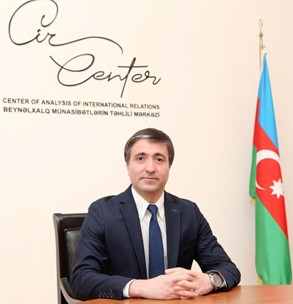The Republic of Azerbaijan, rich in crude oil and natural gas, is a close and reliable energy partner to supply energy resources from the Caspian region directly to Europe. Country’s energy strategy and policy focused on the development of critical energy infrastructure to export its energy resources to global energy markets. At the same time, the promotion of energy efficiency and use of renewables is one of the main priorities of Azerbaijan’s energy policy. Azerbaijan completed successfully all segments of the Southern Gas Corridor (SGC), and the first commercial natural gas to Europe entered on December 31, 2020 via the Trans Adriatic Pipeline (TAP). Since that period, Azerbaijan has been supplying natural gas to the European energy markets via TAP, which is the European leg of the SGC.
In recent years, the EU and Azerbaijan have deepened energy cooperation by signing the “Memorandum of Understanding on a Strategic Partnership in the Field of Energy” on July 18, 2022 in Baku. The MoU envisages doubling the capacity of the SGC to deliver at least 20 bcm of gas to the EU annually by 2027. The signed MoU between the EU and Azerbaijan supports green energy cooperation; therefore, the Azerbaijani government is focusing on the development of a long-term energy strategy that will reflect important areas such as electricity and natural gas supply, energy efficiency, and the use of renewables. This process will help the country produce electricity using renewable energy sources while decreasing the use of natural gas for electricity production. It will also diversify the Azerbaijani energy export, as the country will supply not only fossil fuels but also green energy. Transforming the country into a “green energy hub” is a key component of Azerbaijan’s energy policy. The country closely cooperates with different energy companies to implement various green energy projects across the country.
2024 was declared as the "Green World Solidarity Year" in Azerbaijan, and this is an important measure to demonstrate Azerbaijan’s commitment to environmental protection and climate action. Azerbaijan’s role as a reliable energy partner and responsible member of the international community in the fight against global warming was recognized by many countries. Given that the country won the backing from other Eastern European countries to host the 29th Conference of Parties (COP29) to the UN Framework Convention on Climate Change in Baku. This is an important international event, and the country will host the climate conference for the first time in the region. COP29 climate change summit will be an important platform to support international cooperation to act on climate change and implement the Paris Agreement.
Mr Shahmar Hajiyev is a Senior Advisor at the Center for Analysis of International Relations (AIR Center). He has previously worked for the State Oil Company of Azerbaijan (SOCAR) and the Center for Strategic Studies under the President of the Republic of Azerbaijan (SAM). He holds BA Degree in International Relations from the Azerbaijan University of Languages and MA Degree in International Economic and Political Studies from Charles University in Prague. He participated in the Analyst and Business Development Program of US-based STRATFOR, (Strategic Forecasting Inc.), and also worked as an individual consultant of the Asian Development Bank (ADB). In addition, Mr. Hajiyev is Vice-Chairman Azerbaijan-China Cooperation Public Union. His field of research includes energy politics, energy security issues, renewables, green economy and business. He published numerous articles and book chapters on politics, energy security, renewables, and green growth etc.
